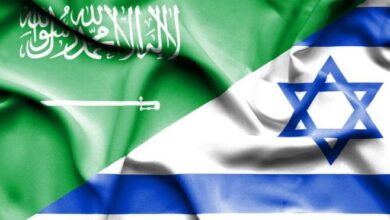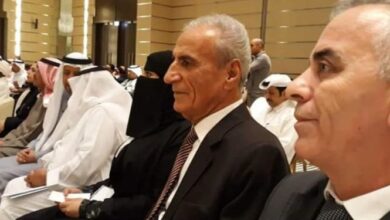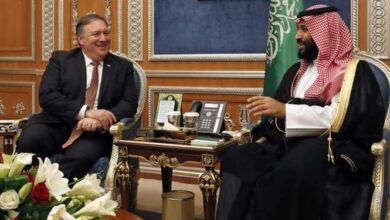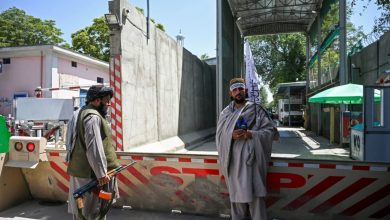KSA to chair G20 emergency summit amid a broad boycott
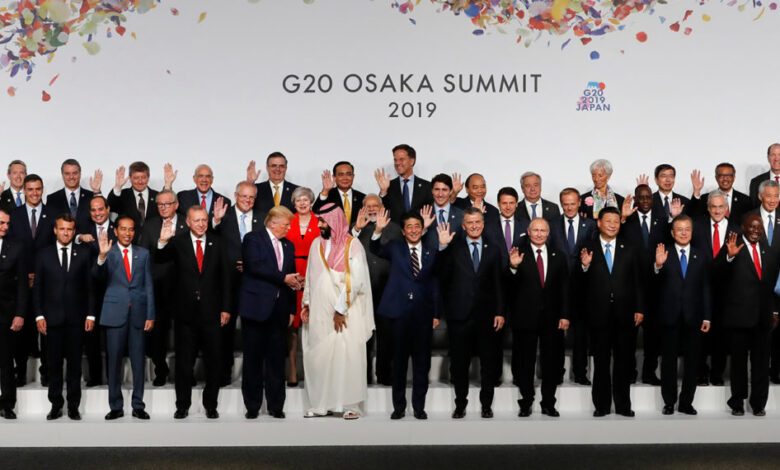
The leaders of the G20 countries are holding an emergency crisis summit via the Internet in an attempt to ward off the dangers of a recession in the global economy against the backdrop of the emerging Coronavirus, after criticism was directed at them in dealing with the crisis.
The Kingdom is chairing the emergency summit at a time overshadowed by the declaration of hundreds of civil society organizations and human rights activists boycotting the summit’s actions in protest against the black human rights record of the Saudi regime and its violations.
US President Donald Trump and Russian Vladimir Putin are taking part in the virtual summit, which is being held in the midst of a price war and increased oil production that Crown Prince Mohammed bin Salman is having with Moscow.
The talks are taking place at a time when the virus has killed more than 21,000 people, and forced more than three billion people to stay home.
“At this critical time when the world faces the emerging Coronavirus pandemic, which affects people, health systems, and the global economy, we meet with the G20 at an extraordinary summit,” King Salman wrote in his Twitter account.
He added that the goal is to “come up with initiatives that fulfill our peoples’ hopes, enhance the role of our governments, and unite our efforts to confront this epidemic.”
The talks focus on how to protect the world’s most important economies from the consequences of measures taken to prevent the spread of the virus, while the specter of an economic recession looms on the horizon.
Moody’s predicted that the gross domestic product in the twenty countries will shrink by 0.5 percent, that the US economy shrinks by 2 percent and the European economy by 2.2 percent.
The major countries, including the United States, presented huge financial incentives, but without putting together a joint plan of action, at a time of growing concern in poor countries that lack the money and proper health care.
The World Health Organization urged G20 countries to provide support to “low and middle income countries”.
Paris and Beijing pushed for the convening of the emergency summit of the Group of Twenty with the aim of discussing reducing the effects of the epidemic.
With world leaders divided, the meeting contrasts with the G20 summits that followed the 2008 financial crisis, when the group turned into a working cell to mobilize aid for vulnerable countries.
Ian Bremer, president and founder of Eurasia Consulting Group, said, “unlike 2008, the G20 appears absent.”
What reinforces this divergence is Trump’s isolationist policy. While the Saudi regime, which will chair the work of the G20 summit, appears to have no external influence.
The issue of declining oil prices, due to the lack of demand and the price war between Saudi Arabia and Russia, is expected to be at the center of the discussions.
Riyadh is facing pressure from Washington to back down from its decision to raise production and offer the largest price cuts in two decades, in response to Russia’s refusal to extend an agreement to cut production.
More than 220 civil society organizations from all over the world announced their boycott of the G20 International Summit scheduled in the Kingdom this year to protest the black rights record of the Saudi regime.
The boycott organizations expressed their concerns about civil society organizations’ engagement at the G20 Summit in the Kingdom for 2020.
The organizations pledged not to participate in this year’s summit, known as the “G20 Civil Society” or “C20”, devoted to civil society meetings within the G20.
The organizations said they would not help the Saudi regime wash its bleak human rights record by hosting the G20 events.

